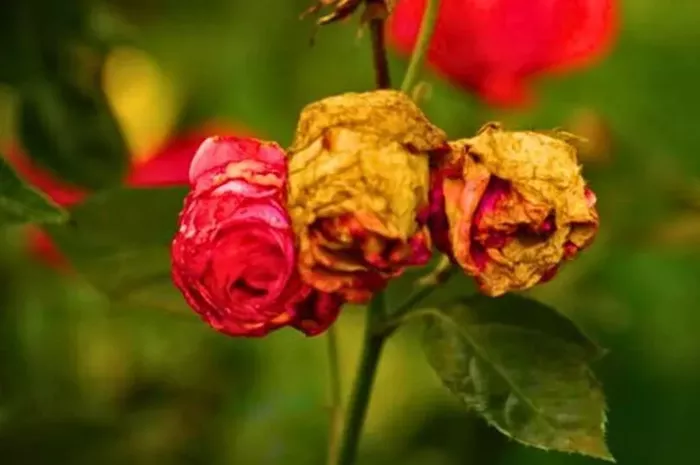Gardeners are being urged to watch out for a common disease that could prevent their roses from blooming again next season. As autumn sets in, plant expert and Moowy founder, Louis Hooft, warns that black spots on rose leaves signal the presence of a fungal disease known as black spot, which is highly problematic for roses.
Black spot, according to Hooft, is the “most common and troublesome” issue for rose plants. The disease presents itself as small black circles on leaves, which can spread if untreated, causing the foliage to turn yellow and fall off.
Hooft explains, “Black spot can infect young canes and flowers, leading to further damage and reduced flower production.” While this disease might not kill the roses immediately, it weakens them and leaves them vulnerable to other threats like pests and harsh weather.
The rapid spread of black spot, especially during the damp autumn season, makes early detection and quick action crucial. If left unchecked, the disease could result in roses losing their ability to bloom, creating a bare and lifeless garden the following year.
The expert highlights that black spot thrives in autumn due to moisture, as fungal spores multiply in fallen leaves and infected stems. These spores are then spread by wind and rain, leading to more widespread infection.
To prevent black spot, gardeners should avoid wetting rose leaves while watering, focusing instead on the base of the plant. Proper pruning and cleaning up around roses in autumn also help improve air circulation and reduce dampness. Mulching is another recommended defense, as it acts as a barrier, preventing soil from splashing onto the plants and spreading spores.
Hooft advises using well-rotted compost and warns against adding decaying wood to compost piles, as this can promote other fungal diseases. Mulches like shredded bark, wood chips, pine needles, and straw are also effective, but gardeners should avoid using fallen rose leaves or plant debris, as these could harbor the disease.
Preventing black spot involves consistent gardening practices, such as watering properly, pruning, and mulching during autumn. By taking these steps, gardeners can protect their roses and reduce the risk of infection.
“Preventing black spot is the best way to manage the disease,” Hooft said. “Creating unfavorable conditions for the fungus and maintaining proper care can significantly reduce the risk.”
Related topics:
- Plant Bulbs Now for Beautiful Spring Flowers
- Aster Flowers Thrive Best with This Vibrant Fall Companion Plant
- Garden and Plant Festival Provides Stress Relief Amid Vibrant Displays This Weekend


